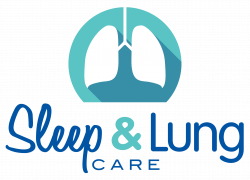Quitting smoking
What are the benefits of quitting smoking?
— Quitting smoking can lower your chances of getting or dying from heart disease, lung disease, kidney failure, infection, or cancer. It can also lower your chances of getting osteoporosis, a condition that makes your bones weak. Plus, quitting smoking can help your skin look younger and reduce the chances that you will have problems with sex. Quitting smoking will improve your health no matter how old you are, and no matter how long or how much you have smoked.What should I do if I want to quit smoking?
— The letters in the word “START” can help you remember the steps to take: S = Set a quit date. T = Tell family, friends, and the people around you that you plan to quit. A = Anticipate or plan ahead for the tough times you’ll face while quitting. R = Remove cigarettes and other tobacco products from your home, car, and work. T = Talk to your doctor about getting help to quit.How can my doctor or nurse help?
— Your doctor or nurse can give you advice on the best way to quit. He or she can also put you in touch with counselors or other people you can call for support. Plus, your doctor or nurse can give you medicines to:- Reduce your craving for cigarettes
- Reduce the unpleasant symptoms that happen when you stop smoking (called “withdrawal symptoms”).
What are the symptoms of withdrawal?
— The symptoms include:- Trouble sleeping
- Being irritable, anxious or restless
- Getting frustrated or angry
- Having trouble thinking clearly
- No longer enjoy or care about doing the things they used to like to do
- Feel sad, down, hopeless, nervous, or cranky most of the day, almost every day
- Lose or gain weight
- Sleep too much or too little
- Feel tired or like they have no energy
- Feel guilty or like they are worth nothing
- Forget things or feel confused
- Move and speak more slowly than usual
- Act restless or have trouble staying still
- Think about death or suicide
How do medicines help you stop smoking?
— Different medicines work in different ways:- Nicotinereplacement therapy eases withdrawal and reduces your body’s craving for nicotine, the main drug found in cigarettes. There are different forms of nicotine replacement, including skin patches, lozenges, gum, nasal sprays, and “puffers” or inhalers. Many can be bought without a prescription, while others might require one.
- Varenicline (brand name Champix) is a prescription medicine that reduces withdrawal symptoms and cigarette cravings. If you think you’d like to take varenicline and you have a history of depression, anxiety, or heart disease, discuss this with your doctor or nurse before taking the medicine. Varenicline can also increase the effects of alcohol in some people. It’s a good idea to limit drinking while you’re taking it, at least until you know how it affects you.
How does counseling work?
— Counseling can happen during formal office visits or just over the phone. A counselor can help you:- Figure out what triggers your smoking and what to do instead
- Overcome cravings
- Figure out what went wrong when you tried to quit before
What works best?
— Studies show that people have the best luck at quitting if they take medicines to help them quit and work with a counselor. It might also be helpful to combine nicotine replacement with one of the prescription medicines that help people quit.What about e-cigarettes?
— Sometimes people wonder if using electronic cigarettes, or “e-cigarettes,” might help them quit smoking. Using e-cigarettes is also called “vaping.” Doctors do not recommend e-cigarettes in place of medicines and counseling. That’s because e-cigarettes still contain nicotine as well as other substances that might be harmful. It’s not clear how they can affect a person’s health in the long term.Will I gain weight if I quit?
— Yes, you might gain a few pounds. But quitting smoking will have a much more positive effect on your health than weighing a few pounds more. Plus, you can help prevent some weight gain by being more active and eating less.What else can I do to improve my chances of quitting?
— You can:- Start exercising.
- Stay away from smokers and places that you associate with smoking. If people close to you smoke, ask them to quit with you.
- Keep gum, hard candy, or something to put in your mouth handy. If you get a craving for a cigarette, try one of these instead.
- Don’t give up, even if you start smoking again. It takes most people a few tries before they succeed.

